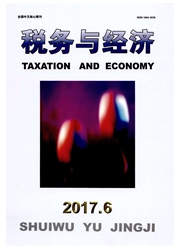

 中文摘要:
中文摘要:
我国传统城镇化进程中累积了诸多与建设生态文明相悖的"非生态"难题,主要是资源消耗过度、人居质量恶化、环境污染严重、生态失衡加剧、基础设施重复建设等。破解这些难题,走新型城镇化道路,实现生态化转型势在必行。新型城镇化的生态化转型与生态文明建设相互契合,协调发展,是实现"美丽中国梦"的有效路径。因此,需要构建合理布局、集约、低碳、循环、文明、和谐、生态宜居、环境友好的新型城镇,实现空间结构、经济和产业结构、制度与文化结构以及人的生态化转型。
 英文摘要:
英文摘要:
There are a large number of "non-ecological" problems which go against the construction of ecological civilization during the process of traditional urbanization in China. The problems such as excessive consumption of resources, deterioration of living quality, grave environmental pollution, ecological imbalance and redundant construction of infrastructure, are more serious nowadays. Therefore, it is inevitable to tackle these problems to achieve new urbanization and ecological transformation. The ecological transformation of new urbanization and the construction of ecological civilization are integrated and coordinated, which is an effective way to achieve "beau- tiful China dream". Therefore, it is necessary to build new livable and environmentally friendly cities and towns which are characterized by proper distribution, intensity, low-carbon, recycling, civilization and harmony. It is still urgent to achieve ecological transformation of spatial structure, economic and industrial structure, institution- al and cultural structure and human being.
 同期刊论文项目
同期刊论文项目
 同项目期刊论文
同项目期刊论文
 期刊信息
期刊信息
